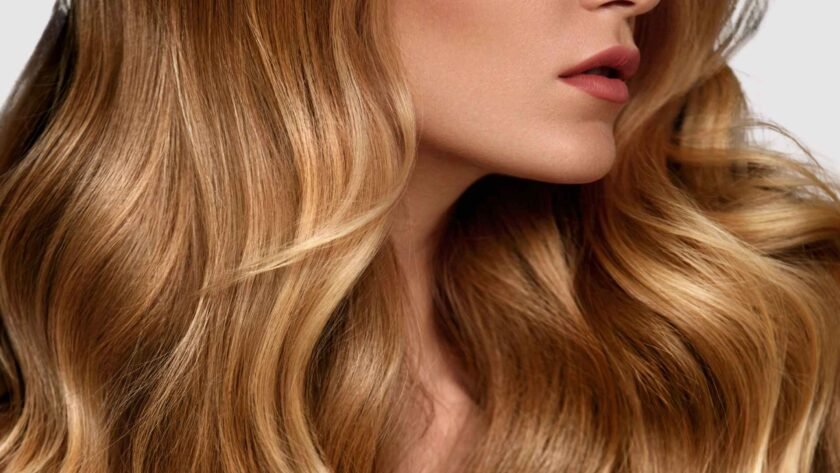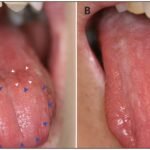Table of Contents
Brief The Article:
What is unique about zinc?
Zinc is a crucial trace mineral involved in over 300 different enzymes related to various bodily functions, including hair health. It’s unique because both deficiency and excess can cause similar hair problems.
What are the benefits of zinc for hair?
- Supports hair follicle growth
- Essential for collagen and keratin production
- Contributes to hair strength and elasticity
- Involved in enzymes controlling hair growth phases
What is the specialty of zinc?
Zinc is special because it works in balance with copper. This balance is crucial for overall hair health, including maintaining hair color and structural integrity.
Is 50mg of zinc too much?
The upper tolerance limit for zinc is about 40mg per day for adults. Consuming more than this regularly without balancing copper intake can lead to side effects and copper deficiency.
How much zinc per day for a woman?
The article doesn’t specify a different amount for women, but suggests a general upper limit of 40mg per day for adults. Individual needs may vary based on health conditions and absorption factors.
What are the zinc benefits for skin?
While the article focuses on hair, it mentions that zinc is important for skin health. It’s involved in collagen production, which is crucial for skin structure and healing.
What is the daily dose of zinc for adults?
The upper limit is 40mg per day for most adults. However, in certain health conditions, higher doses (up to 200-250mg) may be recommended short-term under professional guidance.
Additional important points:
- Zinc deficiency affects 1.1 billion people worldwide
- Only 20-40% of zinc from food is absorbed
- Factors like stress, high-carb diets, and gut inflammation can reduce zinc absorption
- A 10:1 ratio of zinc to copper is recommended to prevent imbalances
- Excess zinc can lead to copper deficiency, causing similar hair problems as zinc deficiency
There’s a dark side of zinc for hair that we need to talk about. Now, since zinc is one of the most important trace minerals for your hair, you need to know that too much zinc can cause the same exact problem with your hair as not enough zinc. So, just how important is zinc for hair health?
In this article, we’ll delve into the fascinating relationship between zinc for hair and uncover the secrets to maintaining healthy, vibrant locks. We’ll explore the potential consequences of zinc deficiency on your hair and discover how optimal levels of zinc for hair can contribute to a fuller, thicker head of hair. Get ready to unlock the power of this essential mineral and discover how it can transform your hair!
So let’s dive into the details…
The Dark Side of Zinc for Hair
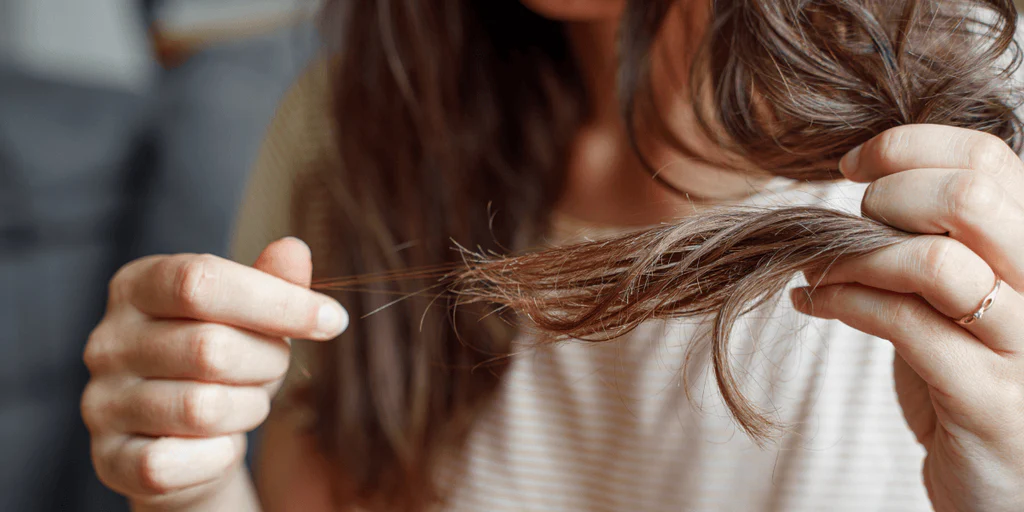
There’s a dark side of zinc relating to your hair that we need to talk about now. Since zinc is probably one of the most important trace minerals for your hair, you need to know that too much zinc can cause the same exact problem with your hair as not enough zinc.
So zinc being a trace mineral is involved in over 300 different enzymes relating to your immune system, testosterone, sense of smell, taste, vision, reproduction, skin health.
I mean, it’s involved in almost every part of your immune system, but I want to touch on the relationship between zinc and your hair because a lot of people are taking way too much zinc and that could be the reason why things get worse.
Key Points about Zinc for Hair:
- Zinc is a crucial trace mineral for hair health
- Both excess and deficiency of zinc can cause hair problems
- Zinc is involved in over 300 enzymatic processes in the body
What is Zinc? The Role in Hair Health

Zinc for Hair Growth: Understanding the Basics
The reason why you might lose your hair when you don’t have enough zinc is that zinc is needed to support the growth of the hair follicle. Now what is the hair follicle?
It’s not the actual hair, it’s the pore or shaft that the hair grows out of and it’s just beneath your scalp. And so the growth of that follicle is dependent on zinc, and if you don’t have zinc, you’re not going to have follicles for the hair to grow out of.
Zinc is also needed for collagen and keratin, two types of protein that allows the hair to be strong and elastic. So if you’re deficient in zinc, you’re going to have thin hair and brittle hair because it’s not going to be elastic.
Zinc’s Importance for Hair:
- Supports hair follicle growth
- Essential for collagen and keratin production
- Contributes to hair strength and elasticity
- For more detailed information on the role of zinc in the body, refer to the National Institutes of Health’s (NIH) Zinc Factsheet.
Symptoms of Zinc Deficiency Related to Your Hair
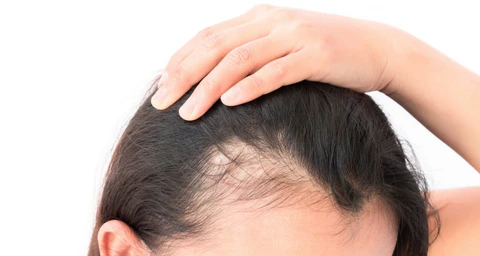
How Zinc Deficiency Affects Hair Health
Also, zinc is needed to make this enzyme ALP (I’m not going to get into the name of it, it’s not important), but ALP is involved in three different pathways that control the different phases of hair growth.
So for example, if you have one of the phases of hair being a little too short or not even existing at all because you don’t have enough zinc, you’re going to have hair loss just from that enzyme.
And on top of that, that enzyme is also responsible for feeding the hair follicle energy so it can actually work correctly. And so as you can see, zinc is really really important. Your hair depends on it.
ALP Enzyme Functions in Hair Growth:
- Controls different phases of hair growth
- Provides energy to hair follicles
- Essential for proper hair growth cycle
Symptoms of Too Much Zinc Related to Your Hair
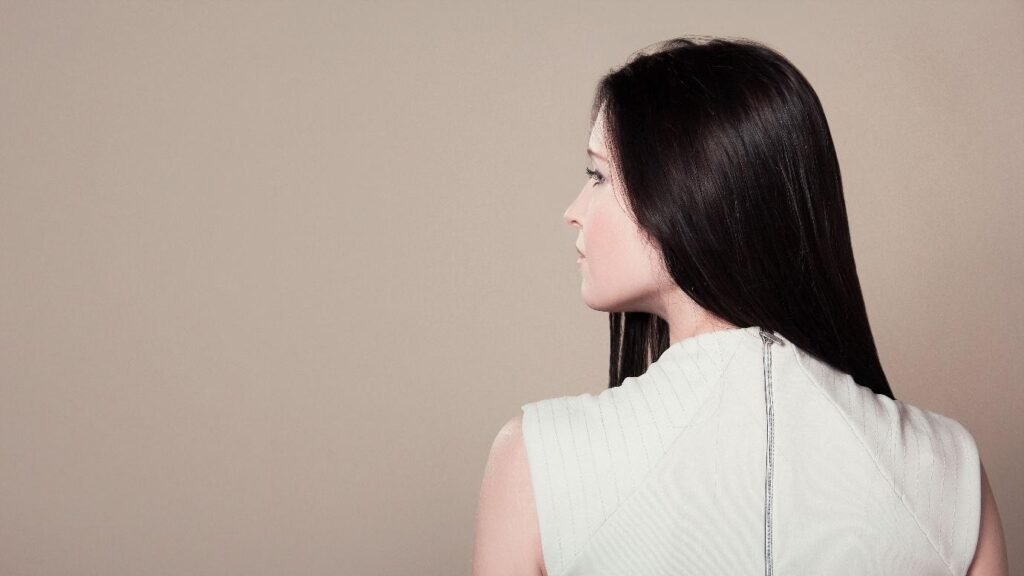
The Zinc-Copper Balance for Healthy Hair
Okay, and I’m going to talk about the amounts of zinc that you need, but let’s just first talk about what happens when you get too much zinc and what those numbers are.
When you get too much zinc, you actually create a copper deficiency in the body because zinc and copper work together like a teeter-totter, just like in calcium and magnesium.
But the more zinc that you take, the more copper you’re going to need, and if you’re taking zinc without copper, that’s when you can create problems.
But copper itself is involved in hair growth as well. Copper maintains the color of your hair, so if you have to color your hair very often, chances are you could be missing copper.
Copper’s Role in Hair Health:
- Maintains hair color
- Supports structural integrity of hair
- Works in balance with zinc for optimal hair health
Zinc Dosage for Hair Health
Safe Upper Limit of Zinc for Hair
Copper also helps the structural integrity of the hair, and so this could actually show up as thinning hair, brittle hair, or even hair loss.
Copper is the co-factor or helper molecule in different enzymes that relate to the growth of hair as well as the maintenance of your hair.
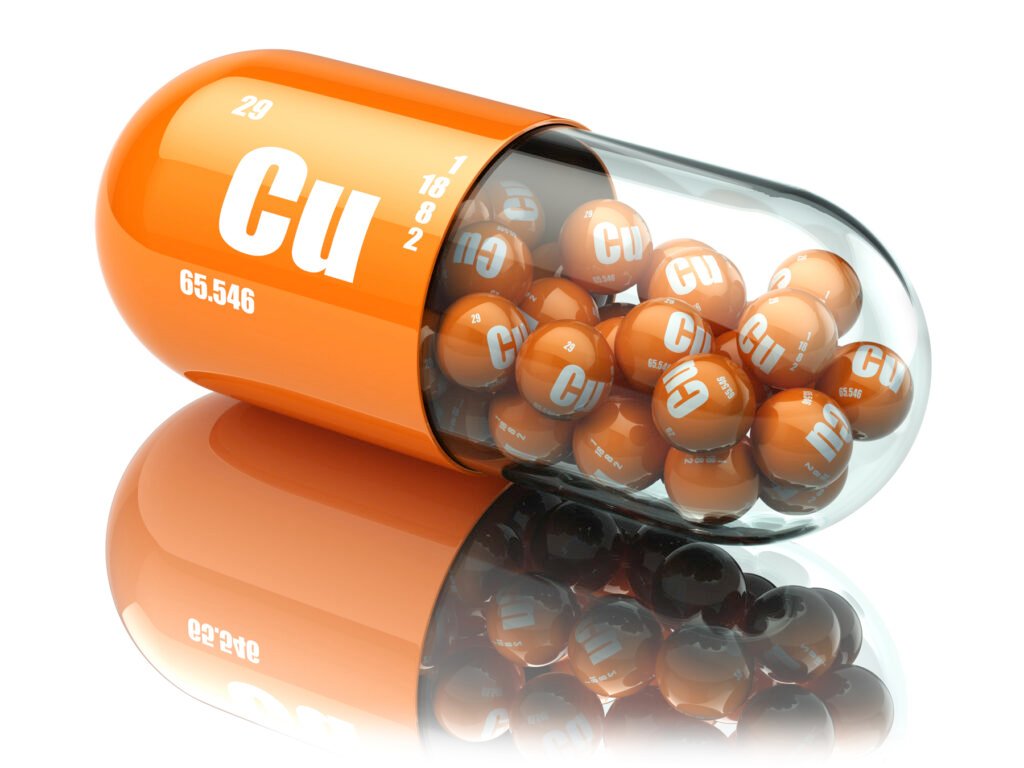
So copper will help prevent the hair loss prevent hair thinning and it will support the follicle that that shaft of the hair. So when you think of zinc toxicity, think of a copper deficiency.
So here’s the important part: the upper tolerance, the amount of zinc that you can take without any side effects is roughly about 40 milligrams per day, and this is for adults, and you’re not going to have any bad effects from that.
Key Points on Zinc Dosage for Hair:
- Upper tolerance: 40 mg/day for adults
- Balance with copper intake is crucial
- Excess zinc can lead to copper deficiency, affecting hair health
Zinc Toxicity Symptoms Affecting Hair
Recognizing Zinc Overdose and Its Impact on Hair

And just so you know, the bad effects would be feeling nauseous, you might have vomiting, decrease appetite, abdominal cramps, diarrhea, and headaches.
But here’s the thing you need to know: in certain circumstances, you need to take high amounts of zinc, like if you have an autoimmune disease or you get an infection, or you have inflammation of the gut which prevents the absorption of zinc because most of the absorption happens in the small intestine.
Symptoms of Zinc Toxicity:
- Nausea
- Vomiting
- Decreased appetite
- Abdominal cramps
- Diarrhea
- Headaches
How Much Zinc Do You Need for Healthy Hair?

Factors Affecting Zinc Absorption for Hair Health
And just so you know, when you eat food that’s high in zinc like whether you’re eating oysters, any meats, shellfish, seaweed, or cheese, you’re only absorb 20 to 40 percent of the zinc from those foods.
But if you have inflammation in your gut, it’s going to be less than that. Now on top of that, there’s other things that decrease the absorption of zinc like stress, like a high carb diet, like phytic acid.
Now what is phytic acid? That’s a an anti-nutrient in grains that prevents the absorption of zinc and other minerals.
And then another thing is if your estrogen dominant, let’s say you’re taking birth control pills or hormone replacement therapy as estrogen or progesterone, you can block the absorption of zinc. And then you also have your stomach acid if your stomach acid is not strong enough you’re not going to absorb zinc.
Factors Affecting Zinc Absorption:
- Gut inflammation
- Stress
- High carb diet
- Phytic acid in grains
- Estrogen dominance
- Low stomach acid
Recommended Zinc Intake for Hair Health
So in those situations you have to take more and in some topics I even recommend taking 200 or even 250 milligrams of zinc short term to overcome a certain health problem whether it’s autoimmune or inflammation or whatever
but the key is making sure you take enough copper to prevent any side effects at all and so roughly the ratio of zinc to copper that I would recommend is like 10 to 1. 10 times more zinc than copper.
So let’s say for example you don’t have an autoimmune disease you’re not going through an infection you don’t have any problems with your small intestine I would take the upper limit dose of 40 milligrams of zinc per day and then I would roughly take like one milligram of copper.
Now these numbers are arbitrary worry they’re not exact so it can be around that but generally speaking if you do like a 10 to 1 ratio of zinc to copper you’re not going to experience symptoms.
Zinc Intake Guidelines:
- Standard upper limit: 40 mg/day
- Higher doses for specific health issues
- Maintain a 10:1 zinc-to-copper ratio
- Adjust based on individual health conditions
Learn More About Zinc for Hair Health!
The Importance of Zinc in Overall Hair Health
But some people actually like to start off small and just do like maybe 10 milligrams of zinc and maybe see how that does maybe work up but so many people are deficient in zinc 1.1 billion people on this planet are deficient in zinc
what the body will do it’ll allocate that zinc to the most important uh functions of the body and not to everything so the body tends to ration out or use the zinc for the most important parts and that probably be related to reproduction sperm count things like that
but your hair probably is not the top of the list for survival as a priority I mean you can survive without your hair just fine but as a species we can’t survive without reproducing.
So you have a couple options with zinc make sure that you’re avoiding things that prevent the absorption but also you might want to be taking some zinc in addition to that eating foods high in zinc. Now there’s a lot more to know about zinc, it’s a fascinating mineral. If you haven’t seen this topic , you should probably check it out right now.
Key Takeaways for Zinc and Hair Health:
- 1.1 billion people worldwide are zinc-deficient
- The body prioritizes zinc for vital functions over hair health
- Consider zinc supplementation and dietary sources for hair health
- Avoid factors that hinder zinc absorption
Summary
- Zinc is a trace mineral, and it’s involved in over 300 different enzymes. Zinc is needed to support the growth of hair follicles. With low zinc, you could experience hair loss.
- Zinc is also needed for collagen and keratin. If you’re deficient in zinc, you could notice thin and brittle hair.
- Having too much zinc can lead to copper deficiency. The more zinc you take, the more copper you need. Copper is also involved in hair growth, hair color, and the structural integrity of the hair.
- The most zinc an adult could take without experiencing any side effects is roughly about 40 mg per day.
Symptoms of zinc toxicity can include:
• Nausea
• Vomiting
• Decreased appetite
• Abdominal cramps
• Diarrhea
• Headaches
- But, you may need even higher amounts of zinc short-term for certain health problems. The key is to make sure you always consume enough copper as well. The correct zinc-to-copper ratio is roughly ten to one.
- It’s important to remember that when you consume foods high in zinc, your body only absorbs 20 to 40 percent of it. There are a lot of various things that decrease the absorption of zinc.
- It’s important to avoid things that prevent the absorption of zinc and consume foods high in zinc. You may also want to consider a zinc supplement as well as make sure you’re getting plenty of copper.
FAQ
Is zinc good for your hair?
Yes, zinc is excellent for hair health. It plays crucial roles in:
- Protein synthesis, essential for hair structure
- Cell division for hair follicle growth
- Hormone regulation, including those affecting hair growth
- Maintaining sebaceous glands for scalp health
Adequate zinc levels can promote stronger, healthier hair and potentially reduce hair loss.
Which is better for hair growth, zinc or iron?
Both zinc and iron are important for hair growth, but they serve different functions:
- Zinc: Crucial for protein synthesis and cell division
- Iron: Essential for hemoglobin production, which carries oxygen to hair follicles
The “better” option depends on individual deficiencies. Iron deficiency anemia is a common cause of hair loss, especially in women. However, zinc deficiency can also lead to hair problems. Ideally, maintain balanced levels of both minerals for optimal hair health.
Is zinc a DHT blocker?
Zinc has a complex relationship with DHT (dihydrotestosterone), a hormone linked to male pattern baldness:
- Zinc can inhibit the enzyme 5-alpha reductase, which converts testosterone to DHT
- This action may help reduce DHT levels, potentially slowing hair loss
- However, zinc is not as potent as pharmaceutical DHT blockers like finasteride
While zinc may have some DHT-blocking properties, it’s not typically classified as a primary DHT blocker. Its benefits for hair are more related to its role in protein synthesis and cell division.
Is vitamin C and zinc good for hair?
Yes, the combination of vitamin C and zinc can be beneficial for hair health:
- Vitamin C enhances iron absorption, which is crucial for hair growth
- It’s also an antioxidant that protects hair follicles from oxidative stress
- Zinc promotes protein synthesis and cell division for hair growth
- Together, they support overall hair and scalp health
This combination can potentially improve hair strength, reduce breakage, and support healthy hair growth cycles.
Zinc for hair loss in females
Zinc can be beneficial for addressing hair loss in females:
- Helps balance hormones that may contribute to female pattern hair loss
- Supports the hair growth cycle, potentially reducing telogen effluvium
- May help with thyroid function, as thyroid issues can cause hair loss in women
- Supports overall scalp health and hair follicle function
Women experiencing hair loss should consult a healthcare provider to determine if zinc supplementation is appropriate, as multiple factors can contribute to female hair loss.
Best zinc for hair loss
When choosing zinc for hair loss, consider:
- Zinc picolinate or zinc glycinate: Often more easily absorbed
- Zinc sulfate: Common and effective form
- Chelated zinc: Bound to amino acids for better absorption
- Multivitamin with zinc: For balanced nutrient intake
The best form may vary by individual. Aim for supplements providing 15-30mg of elemental zinc daily, unless otherwise directed by a healthcare provider. Always balance zinc intake with copper to prevent deficiencies.
Zinc hair growth before and after
Results from zinc supplementation can vary:
- Before: Thinning hair, slow growth, or excessive shedding
- After (potentially):
- Reduced hair shedding
- Improved hair thickness
- Faster hair growth
- Healthier scalp condition
Note that visible improvements may take 3-6 months of consistent supplementation. Results depend on individual factors and whether zinc deficiency was a primary cause of hair issues.
Zinc grew my hair back
While individual experiences vary, some people report significant hair regrowth with zinc supplementation:
- May be most effective for those with zinc deficiency
- Can help restart dormant hair follicles
- Supports overall hair cycle health
- Results often depend on the cause of hair loss
Zinc Tablets for hair
Zinc tablets can be an effective way to support hair health:
- Typically available in 15-50mg doses
- Often combined with other nutrients like biotin or vitamin B complex
- Should be taken with food to reduce potential stomach upset
- Best absorbed when not taken with high-fiber foods
Zinc for hair growth reviews
Reviews of zinc for hair growth are generally mixed:
- Positive reviews often report:
- Reduced hair shedding
- Faster hair growth
- Improved hair texture and thickness
- Neutral or negative reviews might mention:
- No noticeable change
- Stomach discomfort from supplements
- Long wait times for visible results
Topical zinc for hair growth
Topical zinc applications are gaining interest for hair growth:
- May help with scalp conditions like seborrheic dermatitis
- Can potentially reduce inflammation and support hair follicle health
- Often found in anti-dandruff shampoos (zinc pyrithione)
- Some studies suggest it may help with androgenetic alopecia when combined with other compounds

